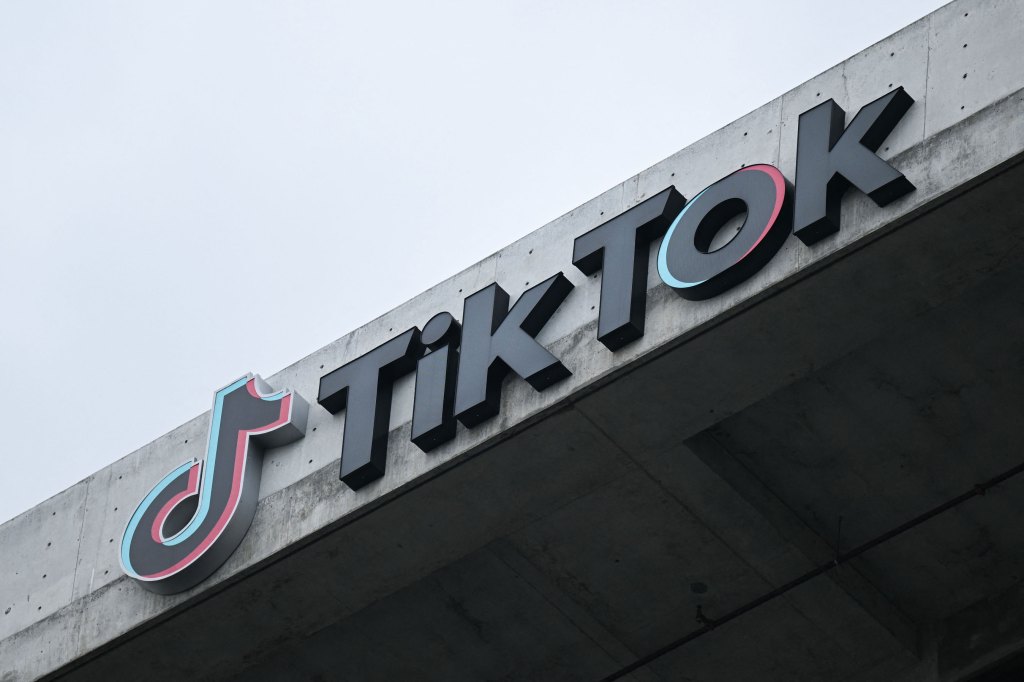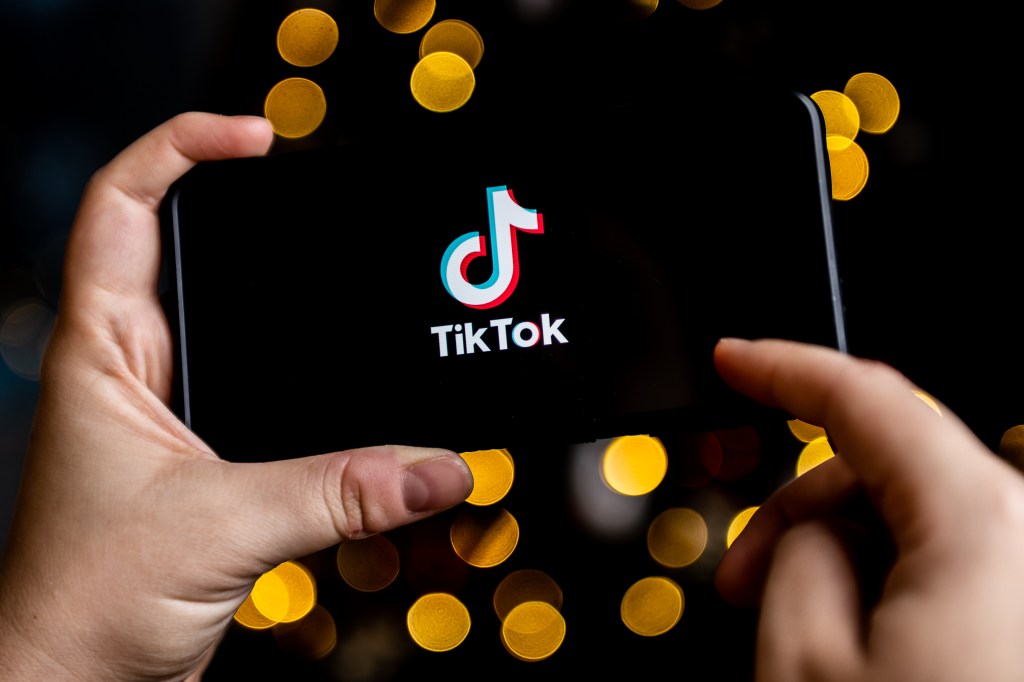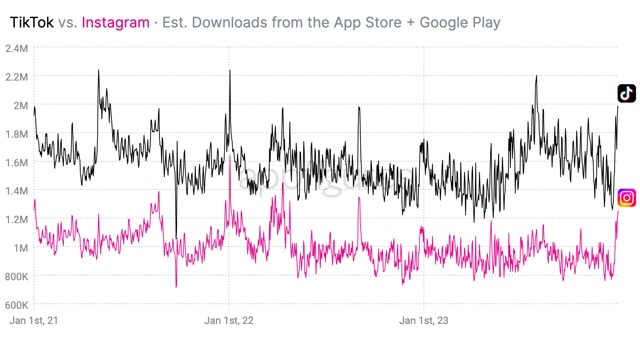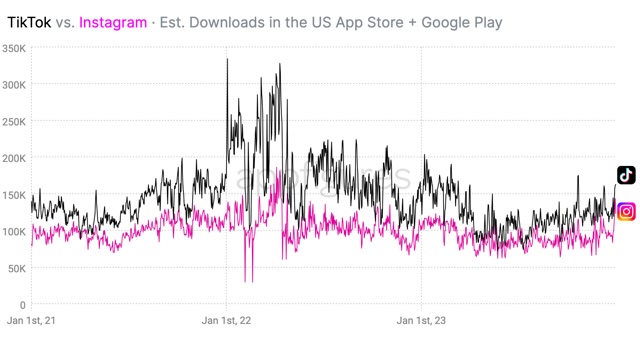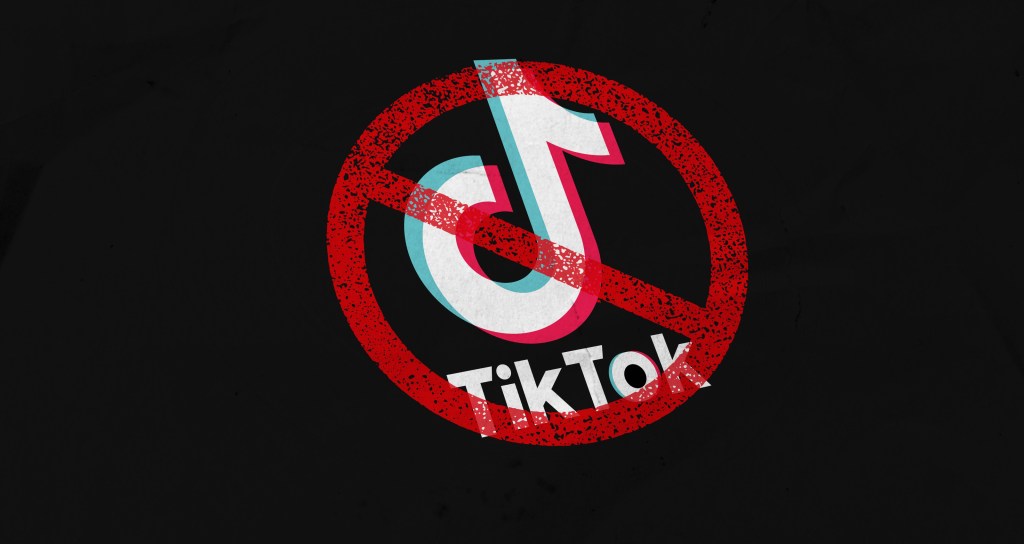 Image Credits: David Sacks, altered by TechCrunch / Getty Images
Image Credits: David Sacks, altered by TechCrunch / Getty Images
“New characters unlocked on the nine-month Ultimate World Cruise TikTok channel!” says an older man as pink letters fly across the screen to form a kooky subtitle.
“Who are they?” his wife asks in a way that’s obviously rehearsed, yet heartbreakingly earnest. The couple responds in unison: “It’s us!”
Mike and Nancy are empty nesters whose TikTok videos look like they were edited on software from the early 2000s. But somehow, they’re at the center of culture on an app known for its young, tech-savvy user base. Welcome to the world cruise. No, we’re not aboard the nine-month worldwide voyage on Royal Caribbean — but like millions of people on the internet, we’re watching intently as the world cruise becomes an accidental online reality show.
@livingphase2Real Ultimate World Cruise Drama! #ultimateworldcruise #royalcaribbean #serenadeoftheseas #royalcaribbeancruise #royalcaribbeaninternationalcruise #worldcruise2023 #worldcruise2024 #cruisetok #worldcruise #royalcaribbeanworldcruise #uwc #livingphase2 #drama
♬ original sound – MikeandNancyLP2
From the get-go, this cruise was going to make a ship-sized splash. Cruises aren’t normally this long, and in recent memory, these extended adventures haven’t gone so well. One new cruise line called Life at Sea Cruises was just about to depart on its inaugural three-year voyage; but after cruisers rented out their homes, quit their jobs and otherwise uprooted their lives to live on a boat until 2027, Life at Sea canceled the cruise at the last minute, stranding some early birds in Istanbul, where the cruise was supposed to begin. It turned out that Life at Sea didn’t even have a boat, leading people to compare the ordeal to the infamous Fyre Fest. So, when Royal Caribbean’s nine-month cruise kicked off just weeks later, the internet was poised to pay close attention.
The world cruise is a similar online phenomenon to Bama Rush — the University of Alabama’s sorority culture is so cutthroat and intense that people followed along religiously with TikTokers’ rush experiences, and later, HBO even made a documentary about it. Whether it’s an over-the-top sorority house or a cruise that costs more than most people’s annual salary, we’re captivated by these unfathomable displays of wealth, especially if something goes wrong.
As the adage goes, every day there is a new main character on the internet, and your goal is to never be that main character. Usually, these figures are the subject of vitriol (like the infamous Bean Dad incident of 2021), but now, the cruisers are the main characters. Some of them are existing influencers who knew what they were getting into, but then you have older folks — the primary audience for these cruises — who may not be ready for the ups and downs of social media fame.
A creator with more than one million TikTok followers, Marc Sebastian, posted a video 10 days into the trip urging reality show producers to “put cameras on that goddamn cruise.”
“We’re witnessing Fyre Festival, Alabama Rush, and no one is rushing there!” he says, exasperated. “Alternately, put me on the cruise, I’ll go… I will cause chaos, I will wreak havoc and I will record everything.”
@marcsebastianfthere will be enough footage for at LEAST 3 season. 1 hr episodes. @Royal Caribbean PUT ME IN COACH #ultimateworldcruise #worldcruise #royalcaribbean #realitytv #cruise #serenadeoftheseas #uwc #royalcarribeancruise
♬ original sound – Marc Sebastian
Sebastian wasn’t joking about getting on the ship, because you can still sign up to go on the cruise just for certain legs of the trip. So, Sebastian got his wish and landed a sponsor to pay for his 18-day cruise trip. Soon, we’ll probably start seeing other influencers board the ship for the clout, stirring up controversy for views; but since Sebastian made the leap first and is leaning into the absurdity of it all, people are loving his updates.
It’s been exactly one month since the world cruise departed from Miami, and while nothing catastrophic has occurred, the hype hasn’t worn down. The internet still can’t look away: Imagine you’re living on a boat with hundreds of strangers, but some of those strangers have suddenly become insanely famous on social media, and your grand voyage has become relevant enough to ordinary land-dwellers that it’s featured on the Today Show.
The cruise is stopping in 60 countries across the whole globe, but the travel content isn’t what’s keeping people interested — it’s the characters. It’s hard not to love Mike and Nancy, who have dutifully kept us updated on extremely low-stakes cruise drama (the ship ran out of certain wines! They had to restock the wines in South America!). But there’s also a cohort of younger cruisers, who are more of your stereotypical influencer types. These characters have sparked many people’s jealousy and/or morbid curiosity, since it’s hard to imagine how anyone in their twenties can afford to go on a cruise that costs somewhere between $60,000 and $120,000.
Some characters include: Amike Oosthuizen, a South African influencer traveling with her boyfriend, and they both look like models. There’s Shannon and Brandee, sisters who make a podcast together, and are traveling with their parents. There’s Dr. Jenny, who is not practicing medicine on the cruise, but is running a consulting business remotely. And then there’s Angie Linderman, whose parents recently died and left enough money for her to cruise the world.
@brooklyntravelstheworldThe Ultimate Real World Cruise Full House Edition🥹🏠🫶🏼 #ultimateworldcruise #royalcaribbean #serenadeoftheseas #royalcaribbeancruise #royalcaribbeaninternationalcruise #worldcruise2023 #cruisetok #worldcruise #royalcaribbeanworldcruise #uwc #fullhouse
♬ Full House – The Hollywood Prime Time Orchestra
It was not 10 days into the cruise before one young cruiser, Brooklyn Schwetje, posted a video introducing the “cast” of CruiseTok. To the tune of the “Full House” theme song, each creator smiles and waves at the camera before they come together for a group shot, where they look like a big happy cruise family. But there’s got to be more drama than that, right? It feels like the first week of college, when everyone in the dorm is best friends, but by the end of the semester, you’re fed up with everyone.
Even people who aren’t on the ship are going viral for cruise-related content. One TikToker, @whimsysoul, made a bingo card for those of us watching from home. Some possible items on the bingo card include: staff dates passenger, petty neighbor drama, mass norovirus, someone falls off, COVID outbreak, second COVID outbreak, pirate takeover, pregnancy, lost passport chaos and a wedding. Would you believe me if I said we’re just one mass STI outbreak away from bingo?
To be fair, the bingo boxes we’ve checked haven’t been that scandalous. But it’s only been one month, and things are starting to get a little hairy. There’s already conflict because members of Royal Caribbean’s rewards program are being treated differently than everyone else (…which is the whole point of rewards programs, but people are mad anyway). Then, at one point, parts of the ship flooded from bad weather. In the coming days, that might get even worse, because the cruisers are journeying toward Antarctica through the infamous Drake Passage. So far, it appears to be extremely cold and windy.
@whimsysoulUltimate World Cruise Bingo Card!!! who’s playing with me? 🛥️ 🌊 🌍 🍿 #ultimateworldcruise #royalcaribbean #worldcruise #cruise #bingo #travel #whimsysoul
♬ original sound – Kara | travel girlie
A highlight of CruiseTok so far was when an older woman named Adita posted a tour of her room, which included a pineapple sign on her door. Apparently, an upside down pineapple is a symbol that means you’re a swinger. So Adita, who’s just innocently posting videos about organizing her medications on board, had to clarify for the internet that she and her husband are not actually looking to swap partners with other couples.
“Sorry to disappoint you, but we are not swingers,” Adita said in a TikTok. “But we do like pineapples!” She then shows off her pineapple ring, pineapple necklace and pineapple earrings. The New York Post wrote about the incident, and she called the publication out for describing her as an “elderly passenger.” She’s been leaning into the jokes though, and even posted a “husband reveal” TikTok, in which her husband poses in a short, pineapple-clad bathing suit.
This week, there was a meetup for content creators on the boat, and Marc Sebastian recorded an interview with Adita about the onboard drama thus far.
“It’s very amusing to me, because I didn’t have a TikTok until about a week ago,” Adita said. She also told Sebastian that some cruisers have rooms that cost $765,000 and have a grand piano inside. And, as a Pinnacle member, she has access to a secret stash of Pellegrino, which apparently is difficult to find elsewhere on the ship.
@sipteawithmelissaReplying to @Melissa 9 Month Cruise Pineapple Drama 😩👀🍍 #popculturecommentary #popculturenewstoday #celebnews #celebritynews #ninemonthcruise #9monthcruise #serenadeoftheseas #ultimateworldcruise (@Adita)
♬ original sound – Melissa
The cruise has remained so compelling for this whole month because we, the audience, are in a state of perpetual suspense. We have high expectations for shit to hit the fan, but we don’t know yet if it’ll be in a fun way, like a surprise cruise wedding, or in a horrific yet still possible way, like someone dying. Things can be good chaotic, like when the Ever Given ship got stuck in the Suez Canal, or they can be bad chaotic, like when a submarine of billionaires exploded on the way to visit the ruins of the Titanic.
If you haven’t yet tuned in, now’s a good time. The waters on the Drake Passage are mighty. A new influencer is stirring the pot. The wine supply has been refreshed. Come on aboard.
The internet moments that defined 2023


